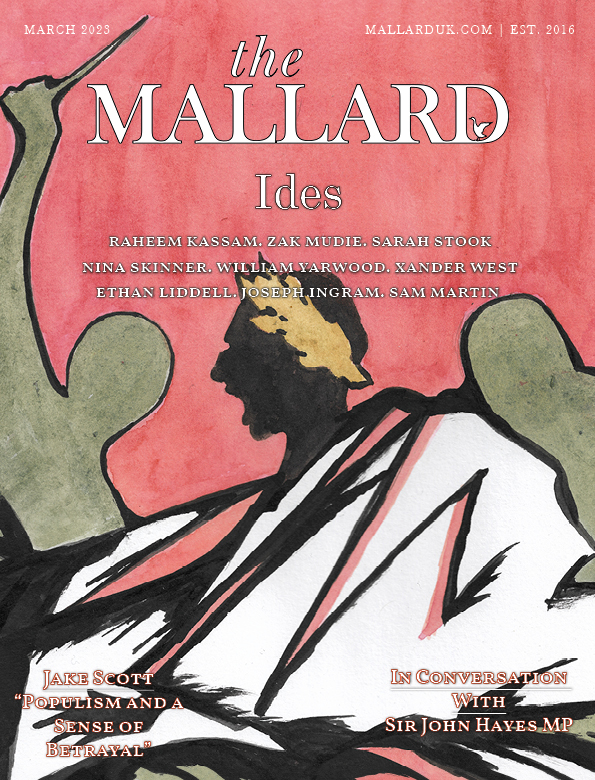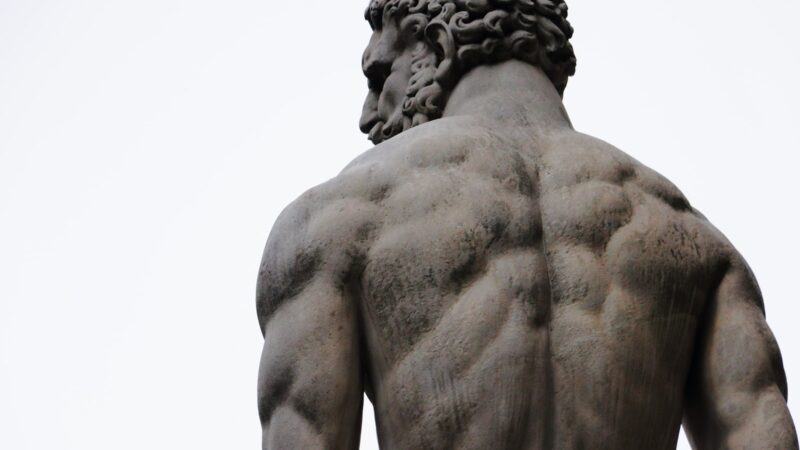Leading up to December 2022, when I was preparing for my PhD viva, I was told by colleagues – quite consistently – that populism was back on the academic agenda. Clearly, I had timed my PhD well, the covid pandemic aside.
Now, at the conclusion of the process, I have people ask me what my core conclusions are. The truth is, I say, populism is going to remain a permanent feature of our political system for a long time, to such an extent that I think, for all his mistakes and poor insights, Cas Mudde was right to describe our era as the ‘populist zeitgeist.’ I am not alone in making this prediction: in his farewell speech to the European Parliament, Nigel Farage said populism ‘was very popular’; and there abound many different academic attempts at explaining the likely enduring appeal of populism.
Among them I find particular value in Nadia Urbinati’s Democracy Disfigured (2014) and Me, The People (2019): the former is particularly focused on how democracy can be transformed, though populism is only part of that story. In that book, Urbinati attempts to analyse the role of what she calls the doxa in democracy, emphasising the linguistic and dialogical elements of democracy as methods of identifying conflict and resolving them; in response to this, says Urbinati, populism attempts to ‘fix’ the inevitability of conflict. It can do this because democracy (and politics in general) is actually about never attempting to remove conflict, merely attempting to ‘win’ the immediate conflict, whilst accepting that you may ‘lose’ the next one. The underlying unity is, as a result, quite thin, and little more than a general agreement on the process of conflict and resolution, rather than an agreement on the resolution of conflict specifically.
Populism, says Urbinati, works from within the logic of democracy to recognise the inherently conflictual nature of politics and democracy, and then seeks to deny it. Instead of attempting to win now, and accept the possibility of losing in the future, populism attempts to win forever, and deny the possibility of future conflict. In doing so, populism becomes anti-politics.
In the latter book, Urbinati delves deeper into populism specifically, and considers the internal mechanisms of populism, rather than just the impact it has on democracy. In doing so, Urbinati looks at the role of ‘antiestablishmentarianism,’ ‘antielitism’ and, crucially, the messianic leader, in the emergence of populism.

This is an excerpt from “Ides”. To continue reading, visit The Mallard’s Shopify.
You Might also like
-
Breakfast with Thierry Baudet (Part II)
In mid-July, the Mallard was fortunate to have breakfast with Thierry Baudet, leader of the Dutch ‘Forum for Democracy’ (FVD) party in the Netherlands. We discussed his views on manufactured consent, immigration, CBDC, and climate change; and his new book ‘The Covid Conspiracy’. Part I can be read here.
TM: So who made the decision then?
TB: I cannot point at a single desk. That is not how things work. My point is that all mainstream media and government agencies are intertwined with an international group of people who meet in Davos and the EU and New York. They are in turn influenced by secret services, multinational corporations, huge tech and pharmaceutical companies. That is where the scenarios are planned.
Before Covid, between eight and ten massive pandemic simulations were ran. There was a huge simulation called Event 201 which involved the John Hopkins Center, the Bill and Melinda Gates Foundation and the CIA. They ran scenarios on what to do if a corona virus struck. This was all just before a massive corona virus did strike. Through these scenario plannings, governments were already given their instructions on how to respond. Then everything simply had to be coordinated in lock step.
TM: Do you not think we have to prepare for things?
TB: We have to prepare for things but the irrationality of the plans points to different interests, not to the genuine interests of the public. So if we are incapable of seeing the scenarios created for us by the big players in the background, then our democracies are in danger.
TM: So Covid has demonstrated that our democracy does not work?
TB: The processes we thought we had in place to make rational decisions are void.
TM: Void or captured?
TB: Captured is better. There are mechanisms in place which create the impression of consent. You can generate a narrative which suggests that there is a consensus.
By contrast, when you give people an actual question and a choice, in a referendum for instance, you admit that there is a choice. That is why the system is so opposed to referendums, because the very principle of a referendum implies a choice. At that moment, but not before, people will start to realise there actually is a choice.
TM: Are you not worried that too many referendums will cause apathy?
TB: No, I think it will increase turnout, ownership, responsible citizenship. What puts people off is when they feel that nothing matters. It is just another asshole in a grey suit.
TM: Why do you think that elected officials are unwilling to make the changes they promise? In Britain, for example, the Conservatives have been promising to reduce immigration for decades, and yet we have seen an exponential increase.
TB: The reason is that they are unwilling to uproot the established powers which desire these things. immigration is in the interest of real estate owners. It is in the interest of big corporations and the worldwide globalist political establishment which wishes to do away with national identities. There are very, very strong powers in the background that push for these policies. If you push against them, the entire system turns against you.
But there is also a cynical element. Politicians can be unwilling to solve problems because their business is to be there when there are problems. Covid provided a rare opportunity for us, because it showed what happens when you actually go against the current. Trump experienced the same thing. The entire fabric of society will turn against you. It’s a price which the Conservatards are not willing to pay, but the long-term cost of that is losing your country.
TM: Depressing?
TB: If you put your faith in established politics then, yes. But if you put your faith in choosing a free life and siding with the alternative, then things can be better. There is a huge reservoir of sensible, normal people who can see it and are willing to oppose it.
TM: Let’s talk about your book.
TB: With every crisis, the answer from politicians is ‘more centralisation’ and ‘more internationalisation’, because we are stuck with this globalist elite which pulls the strings and works hand-in-hand with big corporations and international politicians. Big corporations help politicians win elections. These politicians then give multinational corporations legal immunity and tax breaks. We do not have a free-market or a capitalist system, we live in an age of corporatism. If they make a mistake and something goes wrong, they get a bail-out from taxpayers. It is very unfair to the normal person.
TM: You said earlier that you wanted a Swiss style direct democracy. Do you think that Switzerland governs itself well?
TB: No, simply having a better system of government itself is not enough. It is not a panacea. Switzerland is a lot better off than most of the other countries of Europe, but there are still many problems with it. It is a very interesting country because it is a meeting point for the globalist elite. They need some cafés around the world where they can do business safely, and Switzerland is one of them. Dubai, Singapore, and Iceland are perhaps some other examples. That is why I think Switzerland will probably continue to be all right for the coming decades. The country was not, however, able to escape immigration, climate policies, CBDCs, etc.
TM: CBDCs?
TB: In 2008, it was effectively made clear that the dollar was dead. It would only be a matter of time before the US Dollar would lose its global dominance and the US would lose a massive instrument for foreign policy. People started to think about what to replace it with. They believed that they had to re-invent money. I think that this has resulted in the shift to Central Bank Digital, Currencies, where money is not really a store of value but instead is a coupon. It is issued by the government and can be withdrawn by the government.
CBDC is the government taking full control of the financial world. The lack of any physical component to money means that you cannot take action to survive inflation. Because CBDC is digital, it is also much easier to manipulate and control. It can be set up so that you as an individual can spend it only on certain things within a fixed distance from your house. CBDC is also completely non-fungible, which means it is completely unique to you. It makes it much easier for governments to track and control you. I spoke about it in my book, where I referred to it as the ‘Death Star’ of liberty. It is a slave currency.
TM: That links back to what you were saying earlier, there is nowhere to run. You cannot even escape that if money is phased out.
TB: Exactly. You can either oppose it politically or you can set up your own parallel society. But it is very difficult to oppose generally. That is why we are working on setting up our own blockchain-based trading system.
TM: So, are you not a fan of crypto currency?
TB: I am a fan of decentralised blockchains. I’m not sure if Bitcoin was created by secret services to pave the way for CBDC, or if it actually maybe was someone working on CBDC and decided to launch something to oppose it, that is also possible. The complete lack of sound arguments for introducing CBDC is really surprising.
TM: What are the arguments of its proponents?
TB: That CBDC provides more credit options to the poor because the government can guarantee that their bank accounts remain open. Another is that it increases transparency and reduces the ability of people to launder money. So, the offer of CBDC is that the state gets complete control over your ability to live and spend money, and in return you get potentially less money laundering. Maybe they aren’t going to do it today or tomorrow, but in, say, five years, some crisis hits, and they suddenly claim a moral obligation to do something about it and CBDC becomes a huge problem for everyday normal people.
To be continued…
Post Views: 475 -
Cycling Around Japan
In early 2023, I began watching NHK (Japan’s state broadcaster, akin to the BBC) and discovered a breath of fresh air. A news channel that tells the news in English and has no weird politics or stances it pushes onto you. It was from this, that I noticed that a lot of their programs were different documentaries, mostly which were short that depicted various aspects of the nation’s culture and history. These often ranged from showcasing different cuisines to local history and sports from across Japan. It was from this, that I ended up on a show called ‘Cycling around Japan’, a simple show I must admit of individuals as the name would suggest, that cycle around Japan. A typical episode can be found here.
Its format is simple: follow a non-native individual on a bike around Japan, watching them interact with and appreciate the different locations across the country. As someone who has never been to Japan, nor bikes, why should I be drawn to such programming especially as it is something that would not attract an individual like myself? To understand that question, we must first look closer to home as to why I do not watch my country’s state broadcaster.
Although criticism of the BBC has always really existed, it has become heightened in the last twenty years regarding the content it produces and its lack of impartiality. What the BBC typically used to do well in was its long-form documentaries, we can think of these being narrated by individuals like David Attenborough. Additionally, there are also short formatted programs that showcase the beauty and appreciation for the country we call home. From this great catalog of work, we now look at the BBC and its programs. A recurring trend we have seen emerge is that of the widespread self-hatred that makes up the BBC and often its presenting class. In recent years numerous programming and shows have been produced on the failings and detractions of Great Britain and the British people. Of course, the BBC still does produce great work and shows for all, but the rest of the time it suffers from an oikophobic disease which is particular to the modern West. But NHK does not have/ hold this problem, the programming is largely these very respectful documentaries that promote Japan and its people.
The real question should be this, why does NHK work and the BBC receive widespread criticism? Well, I would argue it is because of shows like Cycling Around Japan, which we can contrast with other shows. How many times have you watched a show or a piece of media from the BBC, which has either been presented by someone who does not like the country they call home or completely misrepresents the nation as a whole? There is no Afua Hirsch, no David Olusoga and no Kehinde Andrews. I would argue this is part of a wider historical trend of showing only one side of a story, portraying the West/Europe in an ultimately negative light.
So why is Cycling around Japan different?
Firstly, this is common across all NHK shows. Nearly all the presenters have a deep love and interest in Japan, the subject matter they are dealing with. Moreover, all the non-Japanese who do the cycling speak fluent Japanese, having lived in the country for a decade-plus, possessing an already basic level of respect and appreciation for the culture they are traveling through and exploring. There are times when BBC presenters are not too interested in presenting Britain at all, opting to address their subjects at an arms-length with a slight hint of embarrassment. NHK does the complete opposite.
A show like Cycling Around Japan, works due to its simplicity and its appeal to traditional life, which for many makes the country a place of envy. From meeting furniture makers and sake brewers, we are constantly seeing and interacting with individuals dedicated to the perfection of their craft. It is this focus and interest in a wide range of activities all across the country, that creates this understanding and love of the little things in life. Combined with the added interest in beautiful scenery, clean peaceful streets, and rich history, we cannot help but fall in love with such a nation. A wholesome slice of life shown to us through the eyes of an English-speaking, non-Japanese person who throws themselves into every interaction and encounter.
This is partly why NHK works and the BBC does not; its state broadcaster has lost this love and appreciation for the country it calls home and subsequently cannot produce anything like this of substance. What we can observe is something rather achievable, a national broadcaster that produces simplistic but enjoyable content that is not self-loathing. Indeed, content can be as simple as allowing a non-native to cycle around the country, meeting and learning about the nation as they go, and make for an excellent watching experience. Meeting artisans, farmers, and musical instrument makers, we are presented with a truer reflection of the country and its many inhabitants.
Post Views: 344 -
Andrew Tate: Idolatry on the Right
In recent months, a phenomenon has swept through social and mainstream media, presenting itself as a paragon of masculinity, success, and wisdom against those that would seek to stultify and control the masses. This phenomenon was known as Andrew Tate, and his reach is something that a Westminster MP could only dream of and envy. At the time of writing this, he has 3.7 million followers on Twitter, and has appeared on Piers Morgan’s TalkTV show, GB News, and Fox News in America. But his reach has gone far beyond the chatter of tweets and the flaccid questioning of Mr Morgan, he has a growing following among teenage boys and those who would identify themselves politically on the right. It would seem to be somewhat innocuous that a figure of influence is ostensibly presenting a message encouraging males to embrace their masculinity and to develop their resilience, but is there more to Tate than meets the eye?
Let’s go back to the beginning. For the purposes of brevity and conciseness, I’m going to avoid a detailed biography of the former kickboxer, that’s what search engines are for. After a rather successful career in kickboxing, at one point ranking second best light-heavyweight kickboxer in the world. Tate first entered the media sphere in 2016, as a guest on the reality show Big Brother, during which time he was scrutinised for his comments on Twitter. Later, he created a website offering training on wealth accumulation and male-female interactions. His most well-known venture involved his brother, Tristan, in which they worked together to operate a webcam studio using his girlfriends to manipulate male callers. A venture which, by his own admission, was a “total scam”.
Again, conciseness would prevent me from going through every controversial post or tweet from Tate. But his recent takes on issues from Covid to Meghan Markle have garnered significant attention and support, resulting in those who agree with his positions to view him in a much more favourable light, in spite of previous controversies; seeing his announced conversion to Islam as a kind of Pauline, Damascene transformation that aligns him to those of us who yearn for a preservation of traditions that have previously maximised the wellbeing of men, women and the raising of children.
Christ warned, in the gospels, of wolves in sheep’s clothing- people who will appear righteous in their sayings and public actions but have their own motives beneath the surface (he intended this as a warning to Christians about those who would enter the body of the church with ulterior motives). Too often, the right has easily clung to different individuals who mimic soundbites or present-day talking points. Interestingly, the most recent social media exchange involving Tate and Climate Changes’ equivalent to the medieval ‘Mad Child Saint’ Greta Thunberg, was actually a clash between two idols; one deified predominantly by the left, and one by the right. Battle lines were drawn and electronic foot soldiers on both sides levelled accusations of being uncritical and blindly following fallible figures; an inexperienced, and scientifically incompetent teenager, and an arrogant, belligerent, and dishonest opportunist.
The truth is that the right is as unaware of its blind spots as the ideological leftists it (rightly) opposes. Our discourse has shifted in such a way that anyone who agrees on talking points of current issues (e.g. race, biological sex, sexuality, etc.), the right’s guard seems to drop and uncritical praise, almost to the point of fawning, is showered on the speaker/writer- for clarity, I’m not precluding the ability to find common ground on these issues, and the right itself is not a monolith. For those of us who are wedded to the philosophy of conservatism, the concept of the ‘Civic Gospel’, and a return to the traditions which were most conducive to social cohesion and unified us under a common, transcendent ideal, there could not be a worse mascot than Tate. His own brand of arrogance, combined with geysers of self-promotion, referring to a nebulous conception of ‘The Matrix’, and a tone that seems as belligerent to those loyal to him, as it is to his so-called ‘haters’- is this really a voice that people think should ‘lead the forces’? This is not to say one should not be sceptical and mindful of actual moves against conservatives, but it has become something of a social-media trope to behave as though we’re aboard the Nebuchadnezzar, jacking in to judo-throw the hyper-liberals, and leap across rooftops evading the political and social gatekeeping agents.
We tend to favour the figure of the ‘strong man’- the individual who will courageously stand by their principles and ideals, fights for and defends that which is good in our world and beats back the foe. Often, people confuse this with the individual that has ‘based tweets’ or will be unafraid of cancellation. If conservatives are to truly win the battle of ideas, it cannot be with shallow social media presences, soundbites, or rallying behind unsavoury characters that cherry-pick conservatism. The blind defence of Tate by certain right-wingers, after his arrest on 29th December, claiming him to merely be a victim of ‘The Matrix’ or some other equally tenuous and incoherent cabal indicates the battle conservatives still have ahead of them- I refer to the battle within.
There are a lot of different ideas and personalities masquerading as conservatism. Some reduce it to merely the contra position to progressivism- to do this is to misunderstand the fact that conservatism isn’t anti-progress, it is merely mindful of progress, to invoke Burke, in the context of the “primeval contract” between the living, the dead, and those yet to be born. I would doubtless be preaching to the converted about the difference between the two positions. Another blind spot on the right is the often-insatiable desire to ‘own the left’. It is in this desire that I think we can find our biggest blind spot. Whether it’s personalities on mainstream/social media, or some other entity, the right has, in recent years often lost sight of its own philosophy in order to score cheap points on liberals/the left; one of the most notable examples being in the struggle against identity politics- I refer you to the appointment of Rishi Sunak as Prime Minister, and the point-scoring with the Tories having the second non-white Prime Minister. It seemed some had forgotten our own history by ignoring the premiership of one Benjamin Disraeli. Granted, there is some catharsis to be had in these moments, but they come at the cost of presenting a mature philosophy that seeks to preserve the best of our society and culture.
To return to the focus of this article, Tate certainly does not represent conservatism in any meaningful way (I’m not arguing for philosophical/ideological purity per se), but he has served a purpose in exposing a ubiquitous blind spot. The Bible refers to the practice of “giving glory to the creature rather than the creator”, the modern obsession with facades, personalities and appearances over thoughts and ideas, I believe, enables this practice. It is clear that if the conservative seeks a ‘model’, it must be someone who transcends the ebb and flow of modern society, or social media soundbites. Even the institutions we venerate can no longer be trusted to be guarantors of the common good, since they themselves are captured by this wave of style and personality over substance. This is why Christian conservatives place Jesus front and centre- a man who stood apart from selfish motives, petty conflicts, but upheld ideals that touched all, while staying true to his boundaries. Whether or not one accepts the metaphysical statements he made, his life and acts, and the culture they inspired should be our gold standard, not the jewellery on Andrew Tate’s wrist.
Post Views: 1,056



